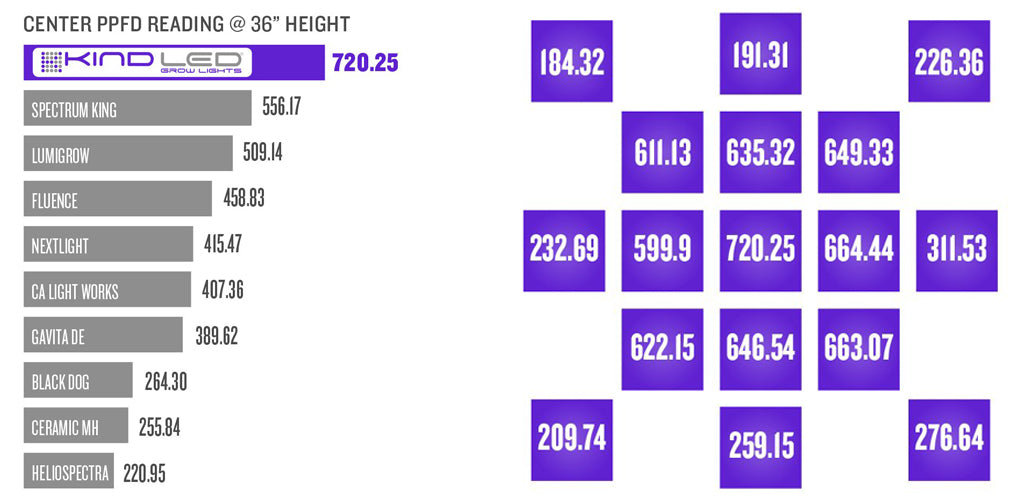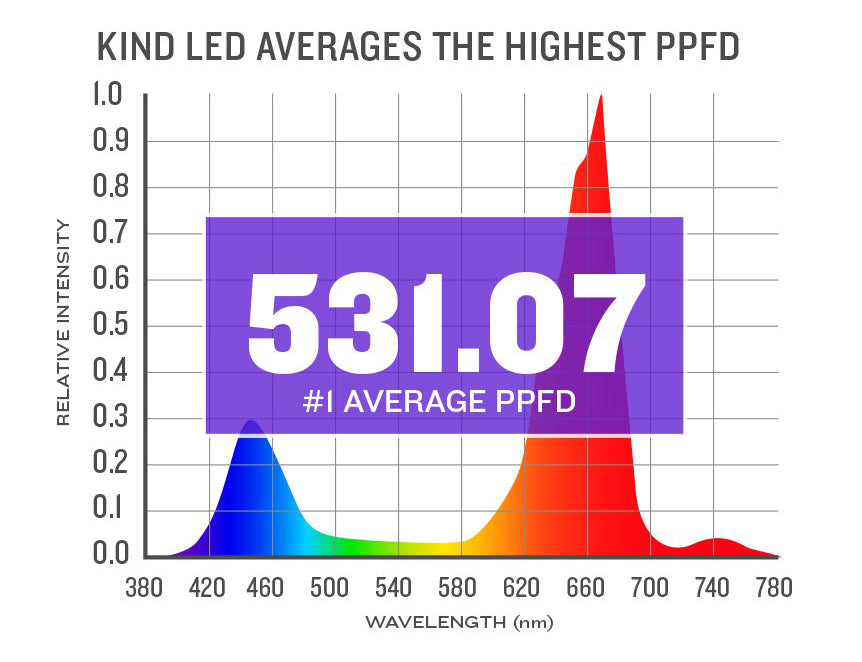Kind LED Grow Lights PPFD readings
PAR: Photosynthetically Active Radiation
PAR measures the total energy within the spectral light range from 400-700nm (nanometers) at which photosynthetic organisms are able to use light energy for the process of photosynthesis.
PPFD: (Photosynthetic Photon Flux Dentisy)
PPFD measures the actual number of photons contained within PAR that are actually reaching your plant's surface.
Why PPFD Matters
Since photosynthetic receptors in plants are activated by the photon itself, not the energy contained within that photon, PPFD is the best way to evaluate how well a grow light will perform and has become the most popular method for comparing indoor grow lights. Higher PPFD readings facilitate better, faster growth, and deeper canopy penetration.


Results
In a side-by-side comparison with the industry's top grow lights, Kind LED came out on top, scoring both the highest overall PPFD reading (720.25) and the highest PPFD average (531.07).
Conclusion
Kind LED has a perfect tunable spectrum including both Infrared and UV diodes. IR and UV are not contained within a PPFD reading as they fall outside of the 400-700nm range, however plants have a significant non-photosynthetic response to these wavelengths that promote heightened oil and crystal development, producing superior quality harvests and greatly improving the flavor profile.
This most recent test demonstrates how KIND provides faster growth, better root development, greater quality harvests, and more efficiency. Secondary optical lenses increase canopy penetration by up to 200%. This, matched with a spectrum that gives plants exactly what they need at each wavelength over the photosynthetic spectrum at an unmatched intensity, is the reason Kind LED Grow Lights test better than any other light on the market.